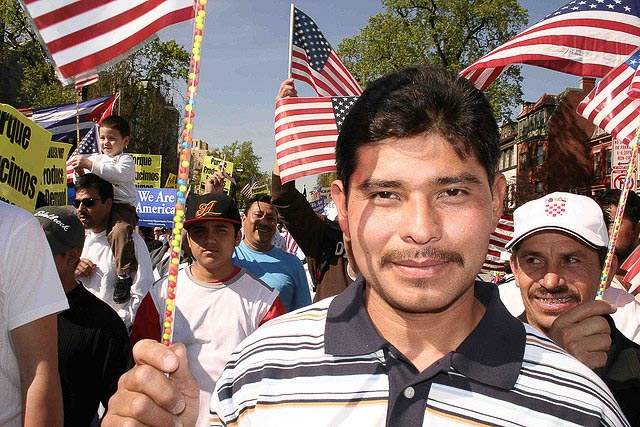Cities are simultaneously home to inequality and breeding grounds of movements to combat it.
Today, and especially in the U.S. Sun Belt, that dynamic often plays out with newly arrived Mexican and Central American immigrants who’ve settled in major cities looking for opportunity.
In Houston, those issues are especially critical. Its Latino population exceeds 2 million and makes up a third of the region’s population. About 834,000 of those Latinos are being foreign-born.
University of Houston – Clear Lake researcher Christine Kovic examined three ways those battles for immigrant rights are playing out in her paper “Mexican and Central American Immigrant Rights: Local Justice Struggles in a Global City.”
In their fights for health care coverage, worker rights and criminal justice system reform, she argues, recent immigrants are working to make the city more inclusive and to provide more opportunities “rather than trying to assimilate to the structures that exclude them.”
Though undocumented workers are more typically associated with the lack of access to social services and work options, new immigrants – both with and without papers – suffer from many of the same structural disadvantages and are closely associated as communities, Kovic argues. Consequently, her paper treats the groups as part of a single collective fight.
“It is precisely because of the criminalization of Latina/os and other minorities that the actions in support of immigrant rights have the potential to make the city more inclusive for all,” Kovic writes.
The Study
Kovic gathered her data from 2009 through early 2015 by observing public hearings, protests, activist press conferences, marches and similar events.
Particularly important, she said, were yearly May Day rallies for immigrant rights, public forums on immigration and visits to the Polk County Detention Center north of Houston, where activists demanded better conditions for those facing deportation. She also highlighted the role of vigils protesting the detention and deportation of immigrants as well as the deaths of migrants at the border.
She supplemented those observations with interviews with nine activists on their involvement in the cause and how different activist groups interact.
The Findings
On the struggle for health care, Kovic focuses on the activism of Living Hope Wheelchair Association, a nonprofit group of Latino migrants with spinal cord injuries. They represent immigrants that are closed off from Medicaid access, but also those who are Medicaid eligible yet find it insufficiently covers their needs.
The group organizes members through “case to cause” activism: beginning with a single case that affects them or someone they know to understand their role in a larger fight. They’ve now linked with groups across the state in pushing for Medicaid expansion.
Kovic also focuses on the Fe y Justicia Worker Center of Houston, meanwhile, a member-based nonprofit group pushing for immigrant and low-wage workers rights that especially emphasizes wage theft issues. It documented $3.3 million in stolen wages from 2007 through 2012, recovering $700,000 for workers.
She credits Fe y Justicia’s work for pushing the Houston City Council to adopt a wage theft ordinance in 2013; the law bars city permits and business licenses for companies convicted of wage theft.
The organization has now linked with like-minded groups fighting deportation and detention as well.
And on that count, Kovic focuses on the protests and vigils held by groups like Alianza Mexicana and Houston United, a coalition of immigrant groups, to protest Harris County’s 287(g) policy, which required local law enforcement to work directly with the Department of Homeland Security to enforce immigration law.
The Implications
“Houston immigrant activism around issues of health care, worker rights, and criminal justice is not only about community survival, it is also about expanding the range of what is possible,” Kovic writes, paraphrasing the anthropologist Karen Brodkin. “The successes of the groups, most visibly the passage of the city’s wage theft ordinance, promises to protect all workers, but especially low wage workers who are disproportionately female and minority, immigrant and non-immigrant alike.”
The organization of activist networks that push for more equitable conditions for immigrant groups promise to make Houston – the most diverse city in America – a more equal city as well.

